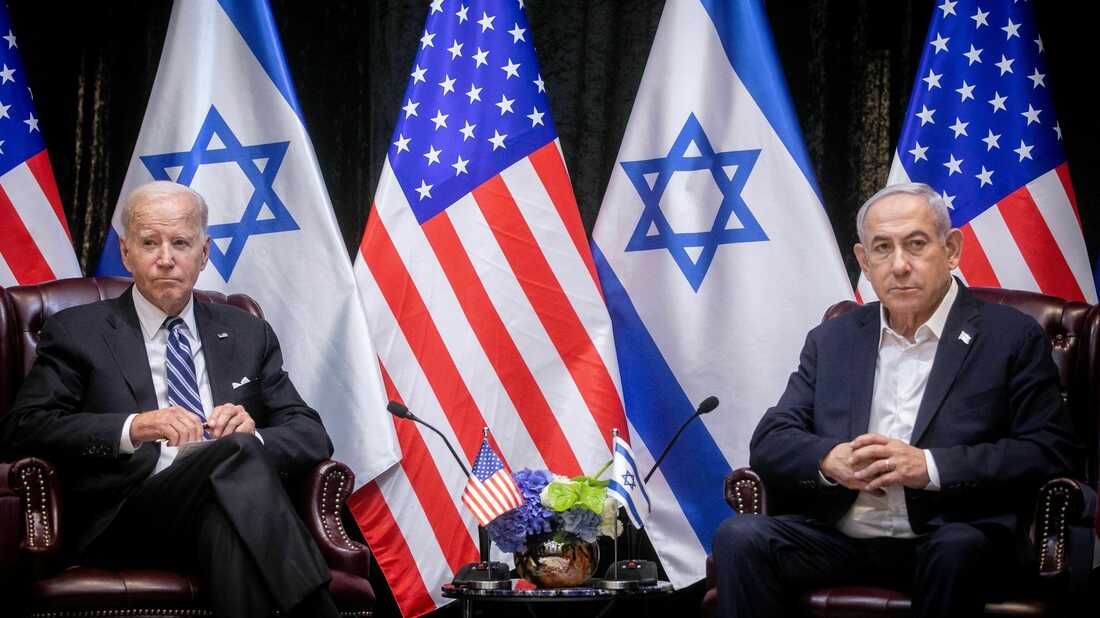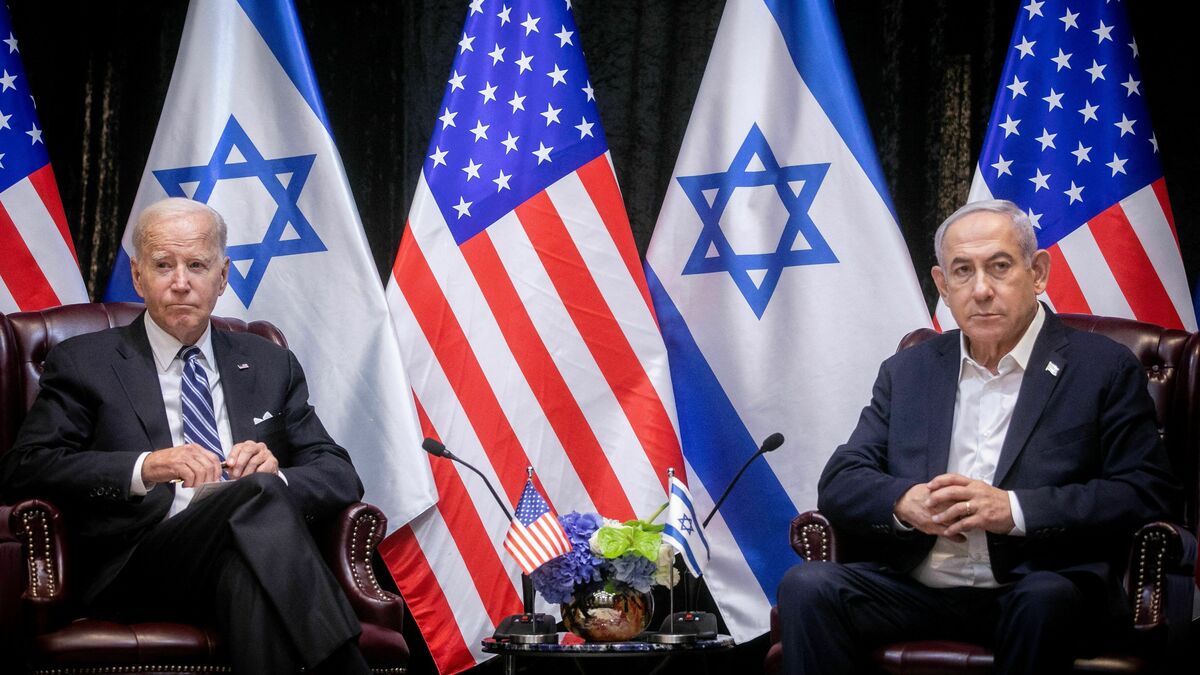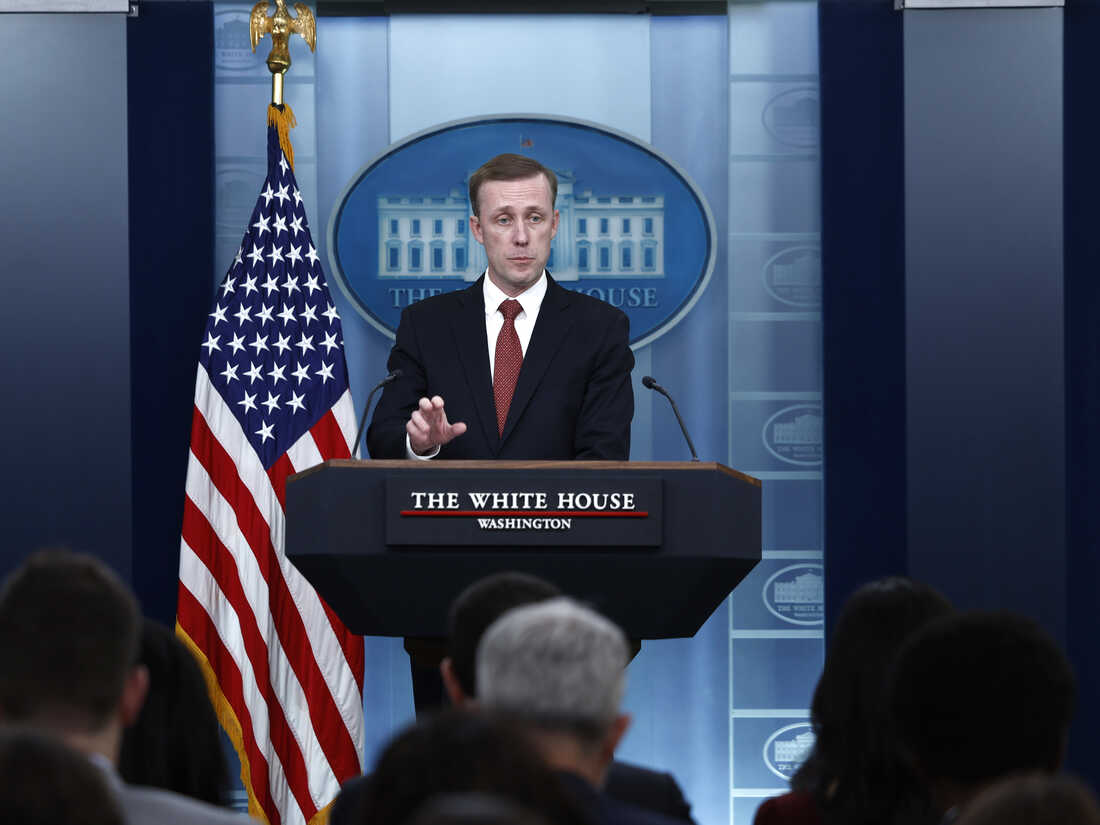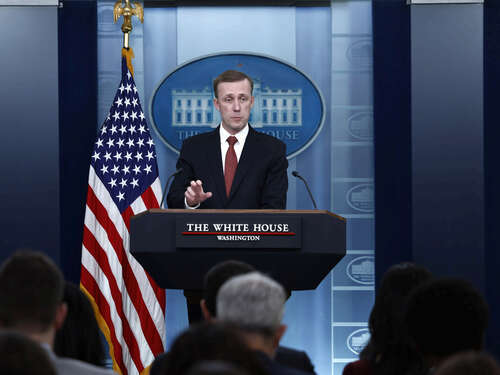
President Biden sits with Israeli Prime Minister Benjamin Netanyahu, at the start of the Israeli war cabinet meeting, in Tel Aviv on Oct. 18, 2023.
Miriam Alster/Pool/AFP via Getty Images
hide caption
toggle caption
Miriam Alster/Pool/AFP via Getty Images

President Biden sits with Israeli Prime Minister Benjamin Netanyahu, at the start of the Israeli war cabinet meeting, in Tel Aviv on Oct. 18, 2023.
Miriam Alster/Pool/AFP via Getty Images
President Biden spoke with Israeli Prime Minister Benjamin Netanyahu Monday, their first call in over a month amid rising tensions over the war in Gaza.
National security adviser Jake Sullivan described a “business-like” meeting between two leaders with different perspectives about a proposed military operation on the city of Rafah in southwestern Gaza.
Biden urged Netanyahu not to carry out the mission on a city where more than a million people have taken refuge, according to Sullivan.
“They have nowhere else to go,” Sullivan told reporters at the White House. “Gaza’s other major cities have largely been destroyed and Israel has not presented us, or the world, with a plan for how or where they would safely move those civilians, let alone feed and house them.”
Sullivan said the president “didn’t make threats” but stressed that there is a better way to defeat Hamas without putting thousands of civilian lives at risk.
Biden asked Netanyahu to send a team of military and humanitarian officials to Washington to hear U.S. concerns and discuss an alternative strategy. The prime minister agreed.

National security adviser Jake Sullivan speaks Israel and the war in Gaza during a news briefing at the White House
Anna Moneymaker/Getty Images
hide caption
toggle caption
Anna Moneymaker/Getty Images

National security adviser Jake Sullivan speaks Israel and the war in Gaza during a news briefing at the White House
Anna Moneymaker/Getty Images
Sullivan said the meeting would give U.S. officials the opportunity to lay out an alternative approach “that would target key Hamas elements in Rafah and secure the Egypt Gaza border” without the need for a major ground invasion.
“From the president’s perspective, we’ve arrived at a point where each side has been making clear to the other its perspective, its view,” Sullivan said. “And now we really need to get down to brass tacks and have the chance for a delegation from each side on an integrated basis, everyone sitting around the same table, talking through the way forward.”
Biden has repeatedly expressed support for Israel’s right to pursue Hamas after the Oct. 7 attack that killed about 1,200 people in Israel and took about 250 hostages.
But Biden has also been using increasingly strong language to call on Netanyahu to do more to protect innocent lives.
More than 30,000 Palestinians have been killed in Gaza, with the majority being women and children, according to the Hamas-run health ministry.
In November, Biden warned that Israel was losing international support.
“Israel’s security can rest on the United States, but right now it has more than the United States. It has the European Union, it has Europe, it has most of the world. … But they’re starting to lose that support by indiscriminate bombing that takes place,” Biden said during a campaign fundraiser in December.
Sullivan emphasized that point to reporters on Monday at the White House, calling an invasion of Rafah a mistake.
“It would lead to more innocent civilian deaths, worsen the already dire humanitarian crisis, deepen the anarchy in Gaza, and further isolate Israel internationally,” Sullivan said.




